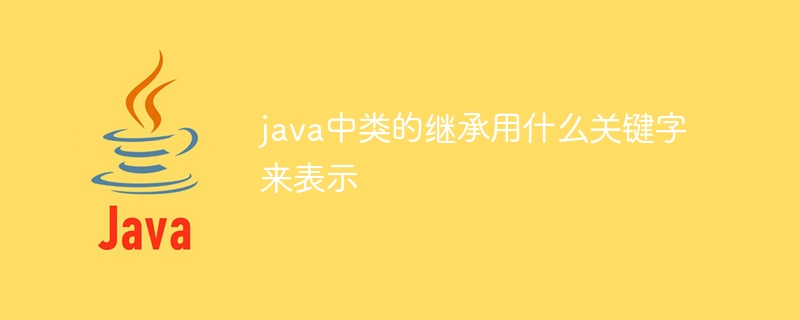Home >Java >javaTutorial >What keywords are used to represent class inheritance in Java?
What keywords are used to represent class inheritance in Java?
- 下次还敢Original
- 2024-05-01 17:48:131040browse
Class inheritance in Java uses the extends keyword. Through inheritance, subclasses can access and override the properties and methods of the parent class to achieve code reuse, scalability and polymorphism.

Keywords for class inheritance in Java
In Java, use the extends key words to represent the inheritance relationship of classes.
The concept of inheritance
Inheritance is an important mechanism in object-oriented programming, which allows one class (subclass) to inherit from another class (parent class) properties and methods. This means that subclasses can access the member variables and member methods of the parent class, and can override or extend the behavior of the parent class.
Usage of extends keyword
To create a subclass, you need to use the extends keyword in the subclass declaration, followed by the name of the parent class. For example:
<code class="java">class ChildClass extends ParentClass {
// 子类代码
}</code>
In this way, ChildClass inherits all properties and methods of ParentClass.
Benefits of Inheritance
Inheritance provides many benefits, including:
- Code Reuse:Subclassing There is no need to redefine properties and methods already defined in the parent class, thereby avoiding code duplication.
- Extensibility: Subclasses can extend the behavior of the parent class without modifying the parent class itself.
- Polymorphism: Inheritance allows the creation of an array of objects that can hold objects of parent and child classes, thereby achieving polymorphism.
The above is the detailed content of What keywords are used to represent class inheritance in Java?. For more information, please follow other related articles on the PHP Chinese website!

